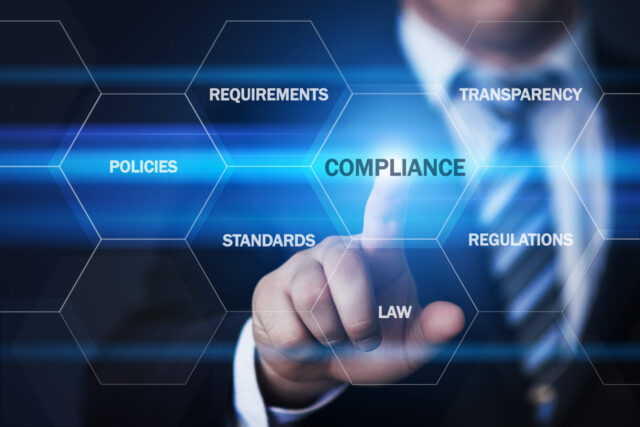
In the bustling, dynamic ecosystem of startups, we often hear tales of unicorns, disruptive innovations, and entrepreneurial heroes.
Behind these stories of meteoric rise and transformative ideas, there lies a tapestry woven with threads of determination, innovation, hard work, and, yes, legal expertise.
While founders, marketers, and engineers often take center stage in the startup limelight, the role of legal professionals in these journeys is equally indispensable.
For startups, charting the turbulent waters of the business world can be fraught with peril. Regulatory pitfalls, intellectual property issues, and contractual missteps can easily sink a young enterprise.
This is where lawyers step in, not just as problem solvers, but as proactive guardians and strategic partners in a startup’s journey toward success.
Why Startups Need Legal Expertise

- Intellectual Property (IP) Protection: One of a startup’s most valuable assets is its intellectual property. Whether it’s a unique piece of software, a novel product design, or a brand name, protecting these assets is paramount. Lawyers help in patent filings, trademark registrations, and ensuring that the startup’s IP isn’t infringed upon.
- Regulatory Compliance: Every industry has its own set of rules and regulations. Navigating this regulatory maze can be challenging. Legal professionals ensure that startups are compliant, thereby avoiding costly fines and reputational damage.
- Contract Drafting and Review: Be it employment contracts, vendor agreements, or investment terms, ensuring that contracts are watertight and beneficial for the startup is essential. Lawyers play a crucial role in drafting and reviewing these documents, protecting the startup’s interests.
Funding and Financial Nuances
One of the defining moments for many startups is securing funding. Whether it’s angel investment, venture capital, or other forms of financing, the legal intricacies involved are manifold.
- Equity and Stock Options: Distributing equity to co-founders, employees, or investors needs careful consideration. Lawyers help in setting up stock option plans and ensuring that equity distribution doesn’t lead to future disputes.
- Due Diligence: Before any significant investment, there’s a rigorous due diligence process. Legal professionals ensure that all the startup’s paperwork is in order, from IP assets to financial statements, making the investment process smoother.
Scaling and Expansion Challenges
As startups grow, they often branch out into new territories or expand their product lines. This growth, while exciting, comes with its own set of legal challenges.
- International Expansion: Moving into a new country means understanding and adapting to a new legal landscape. From employment laws to taxation, lawyers help startups navigate these foreign terrains.
- Mergers and Acquisitions (M&A): When startups either acquire other businesses or get acquired, the M&A process can be complex. Lawyers facilitate this, ensuring that the transaction is in the startup’s best interest.
Ensuring a Strong Legal Foundation

One of the most critical yet overlooked aspects of a startup’s journey is laying a robust legal foundation right from the outset.
Before the product is launched, before the first marketing campaign, and even before hiring the first employee, establishing a clear legal framework is essential.
- Choosing the Right Business Entity: Whether it’s a sole proprietorship, partnership, LLC, or a corporation, the type of business entity chosen can have profound implications for taxation, personal liability, and fundraising capabilities. Lawyers guide founders in making this crucial decision, considering the startup’s nature and long-term goals.
- Licensing and Permits: Depending on the industry, startups might require specific licenses and permits to operate legally. Failing to secure these can lead to operational disruptions. Lawyers ensure all necessary licenses are obtained and renewed timely.
Building Strong Internal Relationships
While startups are driven by passion and vision, it’s the people that make the dream a reality.
Establishing strong, clear internal relationships from the get-go can avert many potential disputes down the line.
- Founders’ Agreements: This document outlines the roles, responsibilities, equity ownership, and other arrangements among the founders. It sets the groundwork for how decisions are made and what happens if a founder decides to leave.
- Employee Contracts and Benefits: Clearly outlining terms of employment, expectations, and benefits can prevent misunderstandings and legal disputes. This includes everything from non-compete clauses to stock options and benefits.
Tackling the Digital Frontier

In today’s digital age, many startups operate in the online realm. This presents a unique set of challenges that need legal oversight.
- Digital Compliance: With data privacy laws like GDPR and CCPA, startups operating online must ensure their platforms are compliant. This goes beyond just having a privacy policy; it’s about data handling, storage, and processing practices.
- Online Transactions: If a startup involves e-commerce or any form of online transactions, there are specific laws regarding online sales, digital customer rights, and electronic contracts. Lawyers help ensure that the startup’s digital operations run smoothly and within the confines of the law.
- Content and Intellectual Property Online: Whether it’s ensuring that the content on a startup’s website isn’t infringing on copyrights or helping with the registration of digital products and services, legal guidance is vital.
Crisis Management and Damage Control
In the fast-paced startup world, not every decision hits the mark. Mistakes can happen, leading to potential legal issues.
Whether it’s a disgruntled former employee, a product liability issue, or an unexpected lawsuit, having a competent legal team can make the difference between a manageable hiccup and a crippling crisis.
For those in Tampa who find themselves in such predicaments, seeking the expertise of seasoned professionals is crucial.
The Tampa Criminal Defense Lawyers offer not just criminal defense but also a deep understanding of the myriad challenges businesses might face, providing startups with the robust defense they need in times of legal crises.
Lawyers: The Unsung Heroes in the Startup Tale

While the narrative around startups is often about groundbreaking ideas and market disruption, it’s essential to recognize the bedrock upon which these stories stand.
Lawyers, with their keen understanding of the legal landscape, help startups navigate challenges, seize opportunities, and most importantly, stay protected from potential pitfalls.
By partnering with the right legal professional from the outset, startups can focus on what they do best: innovating and growing.
The peace of mind that comes from knowing they’re legally protected is invaluable, making lawyers the unsung heroes in many startup success stories.









